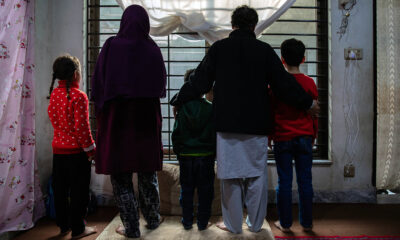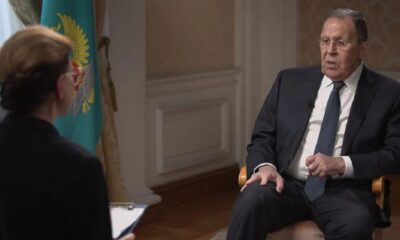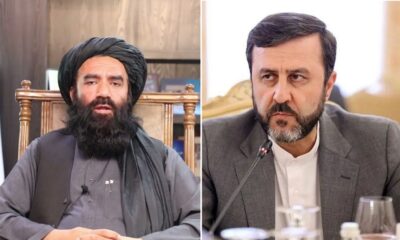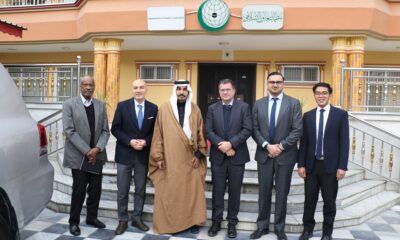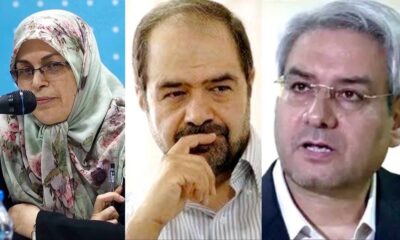Latest News
Ghani addresses special UN session on fight against COVID-19
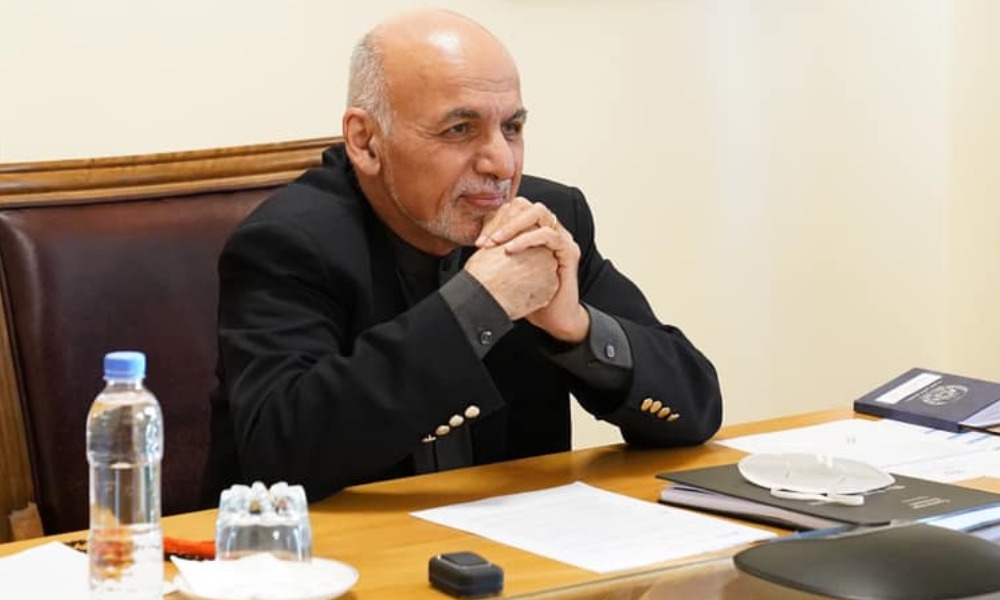
Afghan President Ashraf Ghani on Thursday evening addressed the Special Session of the UN General Assembly in Response to the Coronavirus Disease COVID-19 Pandemic and said government moved quickly to contain the virus after the first case was reported in Herat in February.
“The COVID 19 pandemic came to Afghanistan at the end of February via Herat province, which shares a border with Iran.
“We moved quickly in anticipation that the virus would hit us hard. After analysis and consultation with diverse groups across Afghan society, we planned the response to the pandemic according to five phases of the crisis—acknowledgement, diffusion, adversity, relief and recovery,” Ghani said adding that the virus peaked in June.
He said that because of Afghanistan’s quick response, the country managed to maintain relatively low mortality rates. “We managed our response to not jeopardize livelihoods in the long-term or increase already high levels of poverty and food insecurity.”
He said Afghanistan had learned a number of lessons through this – firstly that “the vast scale of the disruptive and destructive effects of the COVID-19 pandemic is becoming clearer by the day.”
He said short-term impacts were seen almost immediately which included the loss of lives, the loss of jobs, and the downturn in the economy.
“But the medium to long-term impacts, we have not yet fully grasped. So, while we cope with the immediate impact, we need to look ahead and prepare for the long-term effects,” he said.
The second lesson learned was that the impact of the pandemic has been global and that while the response has been mostly national, “we have been unable, as an international community, to fully take advantage of the interconnected nature of our work to combat the disease.”
He pointed out that the world had an opportunity to respond to the pandemic with a level of unity and solidarity but instead countries experienced divisions.
He said a global focal point would have made the response more effective and coordinated, and global resources should have been mobilized on a larger scale.
The third lesson learned was that the pandemic has not been a leveler as expected; but instead, it has exacerbated existing gaps and inequalities across developed and developing nations.
“Countries in special situations have been especially hard hit. For example, we as a poor country, like many others around the globe, were not able to design and implement effective stimulus packages.
“We also had to be very careful in instituting lockdowns to avoid inflicting serious damage on our economy and peoples’ livelihoods, which could have inflicted more suffering than the virus itself,” he said.
Ghani also pointed out that this will continue even once a vaccine becomes available, because administering a vaccine requires capabilities and infrastructure that poor countries do not have.
“The role of multilateral organizations in the joint distribution of the vaccine will be critical. Our call for the vaccine to be a global public good must be loud and clear.” he said.
Ghani also said that Afghanistan is now facing its second wave and with little understanding of how cold weather will affect the nature of the pandemic.
He said he hopes that the international community will be able to draw from the lessons learned through this second wave and that a clear, phased approach needs to be designed and replicated nationally, regionally and globally.
He did say that the world is in a better position now to plan to ensure food security and basic human security in the face of subsequent waves.
“We must make sure that supply chains that were disrupted during the first wave are either restored or alternatives put in place to ensure basic needs are met.”
He also said the pandemic has transformed the way the world does business and the way everyone now lives.
“But it’s not all negative. COVID pushed the digitalization of the world at a speed that was inconceivable. And moving into subsequent waves of the pandemic, we need to embrace digital technology to further a global dialogue around policy, accessing and distributing the vaccine. To take advantage of these technologies, more must, however, be done to address the digital divide.”
“We will not be able to return to our pre-pandemic ways of communicating and governing. The pandemic opened up new possibilities for coordination and cooperation; for example, tele-medicine and distance learning. We need to embrace this change.”
Latest News
Pakistan to repatriate nearly 20,000 Afghans awaiting US resettlement
Authorities will also share verified data of the affected individuals with relevant departments to support implementation.
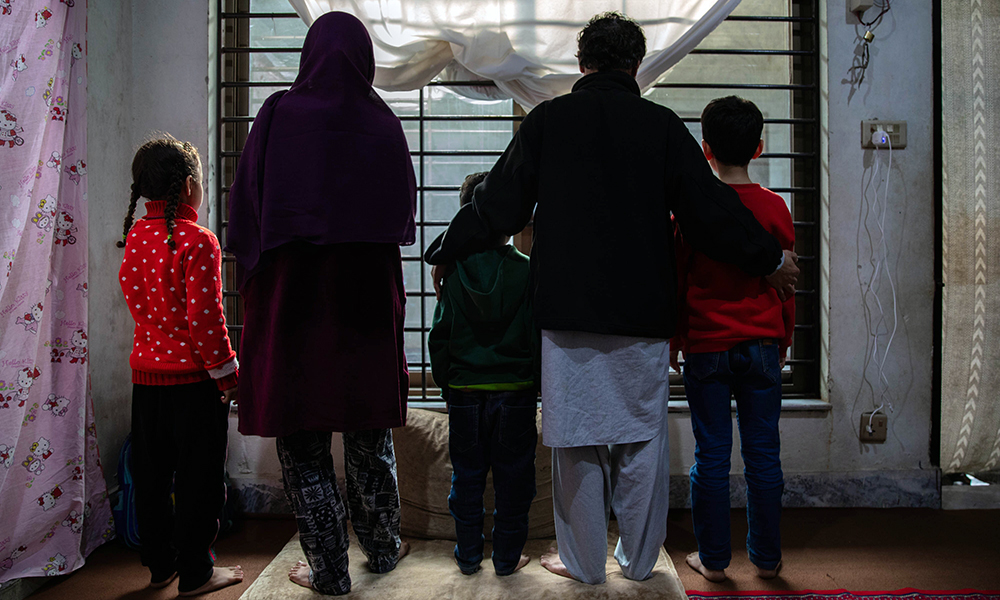
Pakistan will repatriate nearly 20,000 Afghan nationals currently awaiting resettlement in the United States, The Nation reported, citing official sources.
The move affects 19,973 Afghans living across Pakistan.
A federal directive will instruct provincial chief secretaries and police chiefs in Punjab, Sindh, Khyber Pakhtunkhwa, Balochistan, Azad Kashmir, Gilgit-Baltistan, and the Islamabad Capital Territory to begin the repatriation process immediately.
Authorities will also share verified data of the affected individuals with relevant departments to support implementation.
Following the Islamic Emirate’s return to power in 2021, more than 100,000 Afghans fled to Pakistan, many of whom had worked with the US and UK governments, international organizations, or aid agencies.
Thousands have remained stranded in Pakistan for over four years while awaiting US resettlement clearance.
Prospects for relocation have dimmed amid a suspension of case processing by the US administration, according to The Nation.
Under Pakistan’s Illegal Foreigners Repatriation Plan (IFRP), all Afghan nationals still awaiting US relocation will now be returned to Afghanistan.
Latest News
Terrorist activities observed along Afghanistan borders, says Lavrov
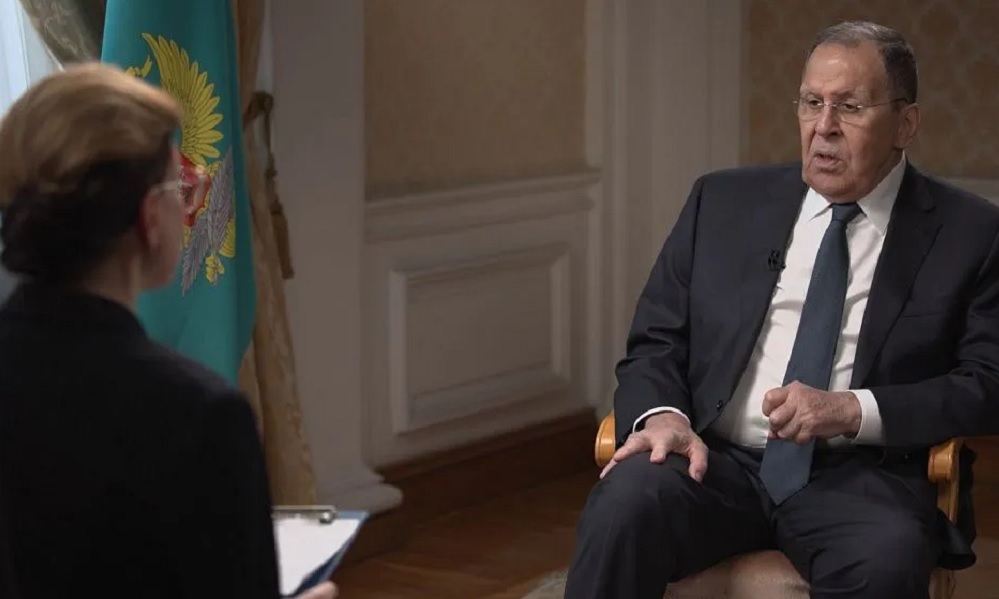
Terrorist activities continue to be observed along Afghanistan borders and along the India–Pakistan–Afghanistan corridor, Russian Foreign Minister Sergei Lavrov said in an interview published on Monday.
Speaking to Russia-based media outlet TV BRICS, Lavrov pointed to ongoing concerns in the Middle East, including its Asian regions.
He highlighted the importance of collaboration with India at the United Nations to advance a global counter-terrorism convention.
Lavrov stated that while the draft convention has already been prepared, consensus on its adoption has not yet been reached.
Russia has repeatedly expressed concern about militant threats from Afghanistan. The Islamic Emirate, however, has dismissed the concerns saying that it will not allow Afghanistan’s soil to be used against any country.
Latest News
Afghan border minister holds phone talks with Iran’s deputy foreign minister
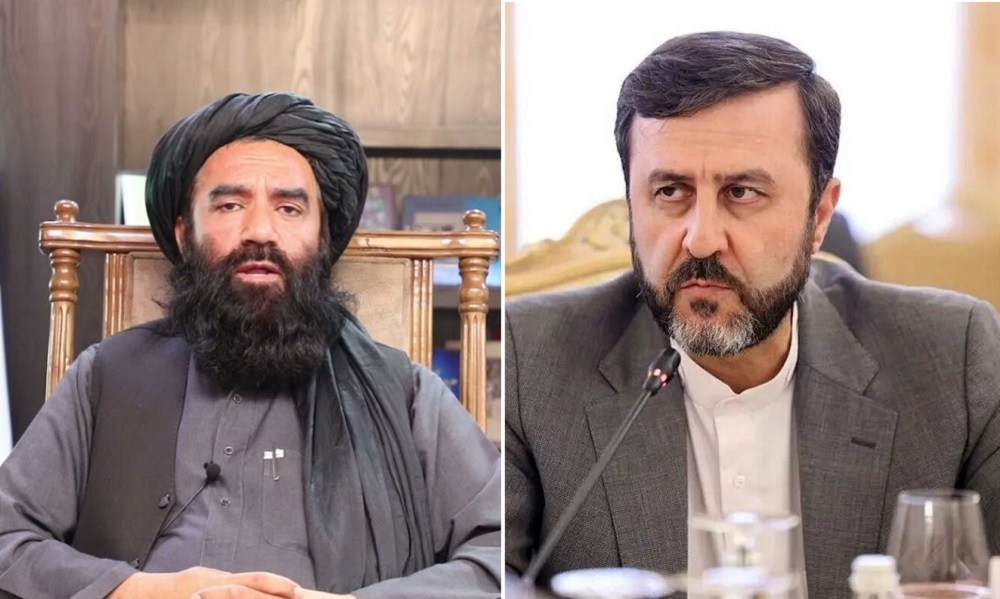
Noorullah Noori, Afghanistan’s Minister of Borders and Tribal Affairs, held a phone conversation with Kazem Gharibabadi, Iran’s Deputy Foreign Minister for Legal and International Affairs, to discuss bilateral border cooperation.
According to the Iranian news agency IRNA, both sides reaffirmed their commitment to strengthening border collaboration, with a particular focus on the ongoing renovation and updating of border markers. They also agreed to accelerate joint technical and legal meetings to enhance coordination.
As part of the agreement, the next meeting of senior border officials from Afghanistan and Iran is scheduled to take place in Iran in 1405 (2026–2027).
-

 Latest News2 days ago
Latest News2 days agoAfghanistan to grant one- to ten-year residency to foreign investors
-

 Latest News5 days ago
Latest News5 days agoTerrorist threat in Afghanistan must be taken seriously, China tells UNSC
-

 Sport4 days ago
Sport4 days agoIndonesia shock Japan to reach historic AFC Futsal Asian Cup final
-

 Sport5 days ago
Sport5 days agoMilano Cortina 2026 Winter Olympics: What You Need to Know
-

 Sport2 days ago
Sport2 days agoIran clinch AFC Futsal Asian Cup 2026 in penalty shootout thriller
-
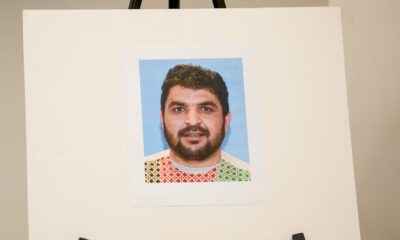
 Latest News5 days ago
Latest News5 days agoUS Justice Department to seek death penalty for Afghan suspect in National Guard shooting
-

 Latest News3 days ago
Latest News3 days agoAfghanistan says Pakistan is shifting blame for its own security failures
-
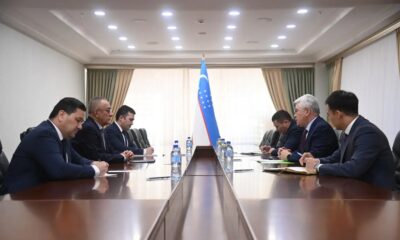
 Latest News5 days ago
Latest News5 days agoUzbekistan, Kazakhstan discuss cooperation on Afghanistan


